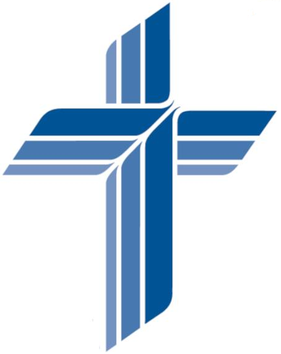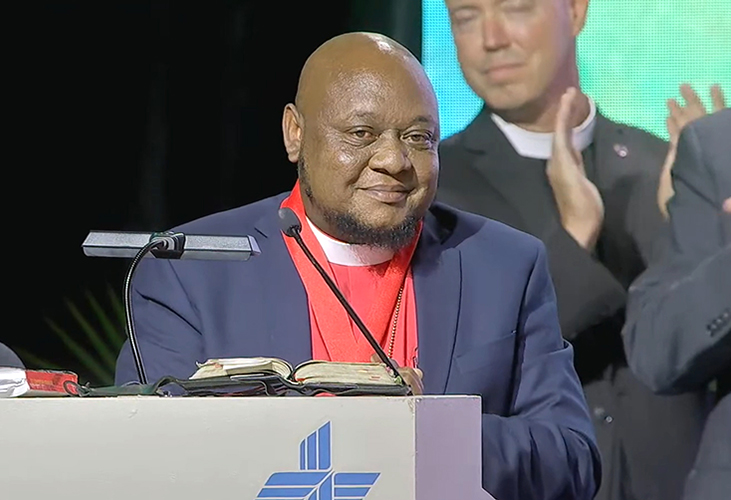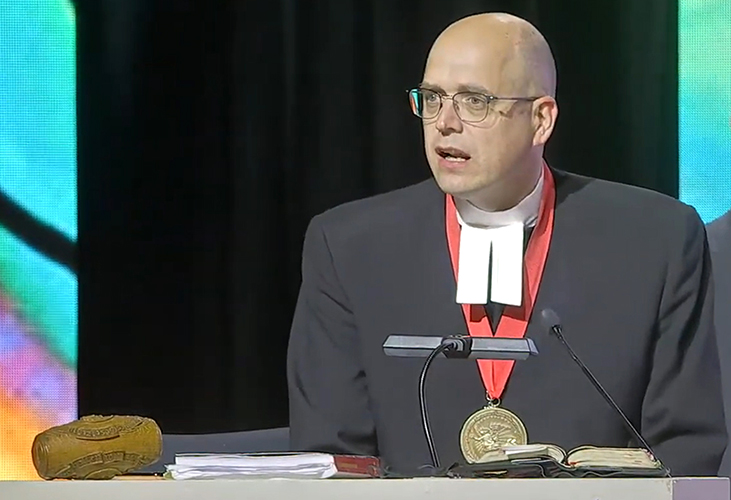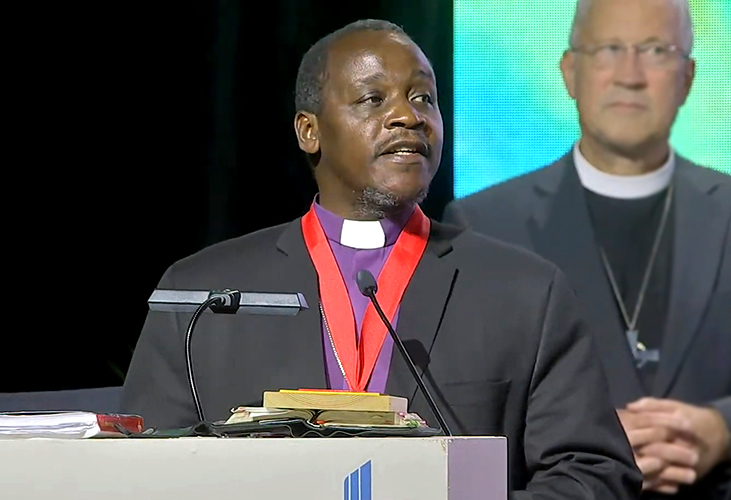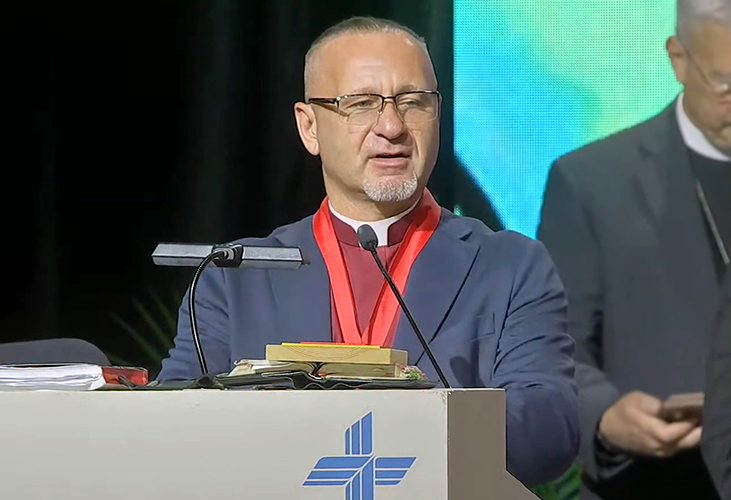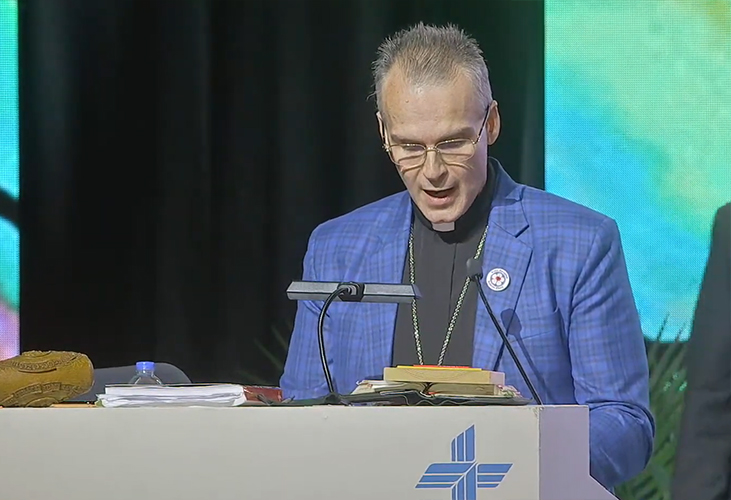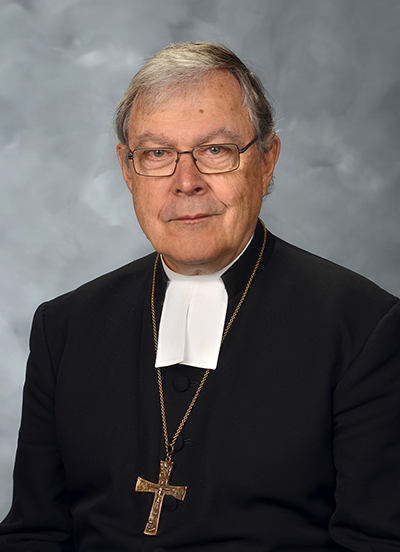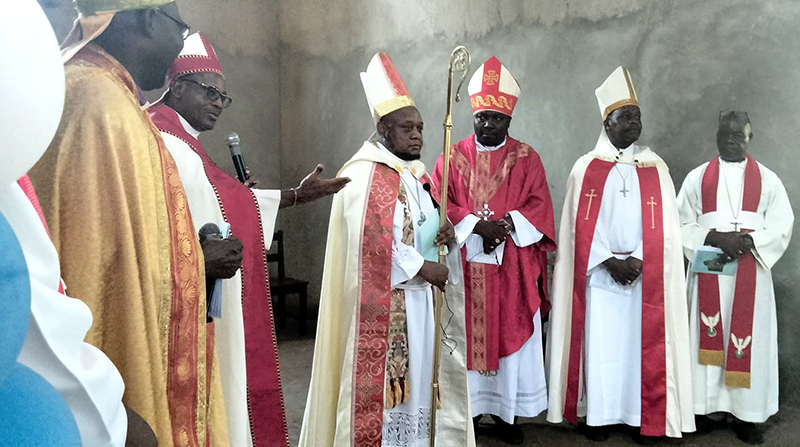
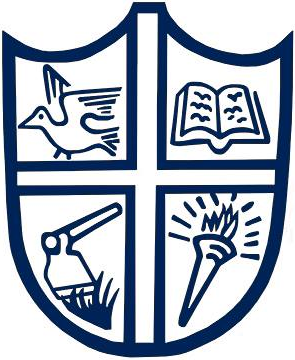
SOUTH SUDAN – The Evangelical Lutheran Church in South Sudan and Sudan (ELCSS/S) held the consecration and installation of its first Presiding Bishop and four diocesan bishops on May 5, 2024, at St. Paul Cathedral in Yambio, South Sudan.
Installed as Presiding Bishop is Rev. Peter Anibati Abia, who was first elected to lead the ELCSS/S as Bishop in December 2016. He was subsequently elected to serve as Presiding Bishop at the ELCSS/S’ General Convention in December 2023.
The change in title from “Bishop” to “Presiding Bishop” reflects developments in the structure of the ELCSS/S, with the church establishing the office of diocesan bishops at its 2023 General Convention. Presiding Bishop Abia serves the Western Equatoria diocese; elected to serve the four other dioceses as bishop are Rev. Ogiki Benjamin (Central and Eastern Equatoria), Rev. Peter Chuol (Jonglei), Rev. Simon Gatluak (Upper Nile), and Rev. Musa Alabina (Sudan). All four diocesan bishops were consecrated and installed into office alongside Presiding Bishop Abia at the May 2024 service. Other officers installed during the service included the church’s General Secretary and the Assistant to the Bishop for the Western Equatoria diocese.
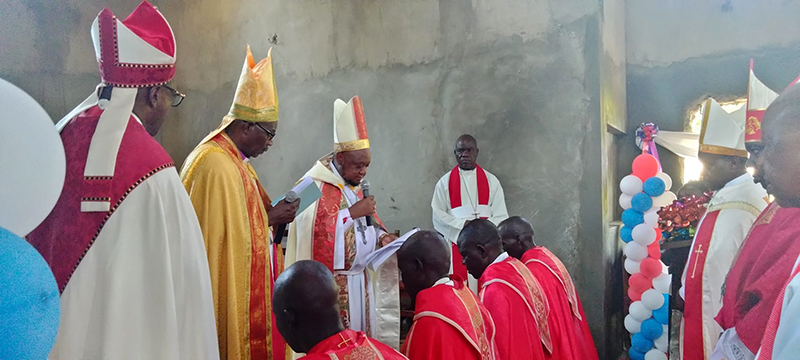
International guests present for the consecration and installation service were Archbishop Christian Ekong of the Lutheran Church of Nigeria (LCN); Archbishop Joseph Ochola Omolo of the Evangelical Lutheran Church of Kenya (ELCK); Bishop David Tswaedi of the Confessional Lutheran Church of South Africa; Bishop Charles Bameka of the Lutheran Church of Uganda (LCU); and Bishop Yohana Nzelu of the Evangelical Lutheran Church of Tanzania’s South East of Lake Victoria Diocese (ELCT-SELVD).
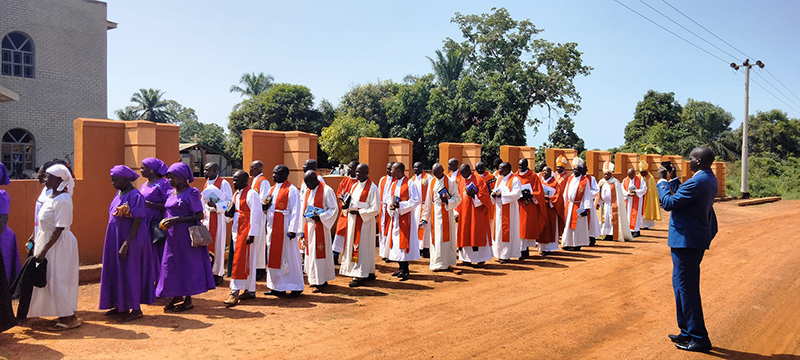
The ELCSS/S was founded in 1993 and has approximately 150,000 members. In 2022, the church was accepted as an observer member in the International Lutheran Council (ILC), a global association of confessional Lutheran churches.
———————

